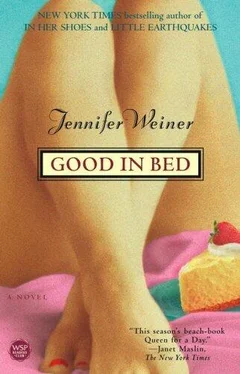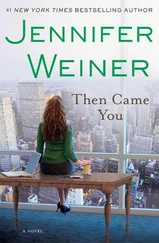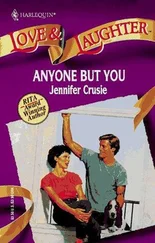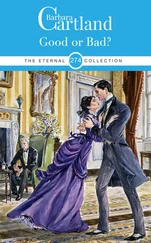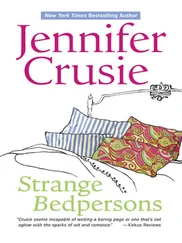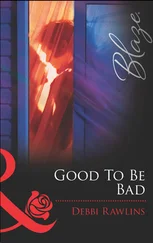It was ironic, I knew, even then. While my peers were writing hip, sarcastic first-person columns for nascent online magazines about being single in the nation’s big cities, I was toiling at a little local newspaper – a dinosaur, quivering on the tar pit of extinction in the evolutionary scale of the media – investigating marriage, of all things. How quaint! How charming!
But I couldn’t have written about myself the way my classmates did, even if I’d wanted to. The truth was, I didn’t have the brio to chronicle my own sex life. Nor did I have the kind of body I’d be comfortable exposing, even in print. And sex didn’t interest me the way marriage did. I wanted to understand how to be part of a couple, how to get brave enough to take someone’s hand and leap across the chasm. I would take each bride’s story, each halting narrative of how they met and where they went and when they knew, and turn them over and over in my mind, looking for the loose thread, the invisible seam, the crack I could pry open so I could turn the story inside out and figure out the truth.
If you read that little paper in the early 1990s, you could probably see me at the edges of a hundred different wedding pictures, in the blue linen dress that I wore – plain, so as not to call attention to myself, but dressy, in deference to the solemnity of the occasion. See me in the aisle seats, my notebook tucked into my pocket, staring at a hundred different brides – old, young, black, white, thin, not thin – looking for answers. How do you know when a guy is the right guy? How can you be sure enough to promise someone forever and mean it? How can you believe in love?
After two-and-a-half years of the wedding beat, my clips happened to cross the right editor’s desk at the precise moment that my home-town’s big daily paper, the Philadelphia Examiner, had, as an institution, decided that attracting Generation X readers was of utmost importance, and that a young reporter would, by her very existence, draw those readers in. So they invited me to move back to the city of my birth and be their eyes and ears on twentysomething Philadelphia.
Two weeks later, the Examiner decided as an institution that attracting Generation X readers mattered not a whit, and went back to desperately trying to shore up circulation among soccer moms in the suburbs. But the damage had been done. I’d been hired. Life was good. Well, mostly.
From the start, the single biggest drawback to my job was Gabby Gardiner. Gabby is a massive, ancient woman, with a cap of bluish-tinged white curls and smeary, thick glasses. If I’m big, she’s super-size. You’d think we would enjoy some solidarity because of our shared oppression, our common struggle to survive in a world that deems any woman above a size twelve grotesque and laughable. You would think wrong.
Gabby is the entertainment columnist for the Philadelphia Examiner and has filled that post, as she’s fond of reminding me and anyone else within earshot, “for longer than you’ve been alive.” This is both her strength and her weakness. She’s got a network of contacts that spans both coasts and two decades. Unfortunately, those decades were the 1960s and 1970s. She stopped paying attention somewhere between Reagan’s election and the advent of cable, so there’s a whole universe of stuff, from MTV on down, that simply doesn’t register on her radar the way, say, Elizabeth Taylor does.
Gabby’s age could be anywhere from sixty on up. She has no children, no husband, no discernible hint of sexuality or hint of any life at all outside of the office. Her lifeblood is Hollywood gossip, and her attitude toward her subjects is rarely anything less than reverential. She talks about the stars she covers, mostly thirdhand, in reprinted bits of regurgitated gossip from the New York City tabloids and Variety, as if they are her intimates, her friends. Which would be pathetic if Gabby Gardiner were the least little bit likable. And she’s not.
She is, however, lucky. Lucky that most of the Examiner’s readers are over forty and not interested in learning anything new, so her “Gabbing with Gabby” column remains one of the most popular parts of our section – another fact that she frequently remarks upon, at top volume (allegedly she shouts because she’s deaf, but I’m convinced that she does it because it’s more annoying than simply talking).
For my first few years at the Examiner we left each other alone. Unfortunately, things escalated last summer, when Gabby took a two-month leave to address some nasty-sounding medical problem (“polyps” was the only word I caught, before Gabby and her friends shot me laser-beam hate looks, and I scurried out of the mailroom without even having retrieved my copy of Teen People). In her absence, I got to write her daily column. She lost the war, but won the battle: They kept calling the damn thing “Gabbing with Gabby,” appending a short note in an embarrassingly small font about how Gabby was “on assignment” and that “Examiner staff writer Candace Shapiro is filling in.”
“Good luck, kid,” Gabby had said grandly, waddling over to my desk for her farewell, beaming as if she hadn’t spent the past two weeks lobbying for the editors to run wire copy instead of giving me a chance while she was off, presumably being de-polyped. “Now, I told all my best sources to call you.”
Terrific, I thought. Hot gossip about Walter Cronkite. Can’t wait.
That should have been the end of it, but it wasn’t. Every morning, Monday through Friday, I could look forward to my daily call from Gabby.
“Ben Affleck?” she’d rasp. “What’s a Ben Affleck?”
Or, “Comedy Central? Nobody watches it.”
Or, pointedly, “Saw something on Elizabeth on ET last night. Why didn’t we have it?”
I tried to ignore her – to be pleasant on the phone and every once in a while, when she got particularly crabby, to toss in a line about “Gabby Gardiner will return at the end of September” at the end of the column.
But then one morning she called and I wasn’t there to pick up my phone, so Gabby got my voice mail, which was basically me saying, “Hello, you’ve reached Candace Shapiro, entertainment columnist at the Philadelphia Examiner.” I didn’t realize my misstep until the paper’s executive editor stopped by my desk.
“Have you been telling people you’re the entertainment columnist?” he asked.
“No,” I said. “I’m not. I’m just filling in.”
“I got a very irate call from Gabby last night. Late last night,” he emphasized, with the expression of a man who did not appreciate having his sleep interrupted. “She thinks you’re giving people the impression that she’s gone for good and you’ve taken over.”
Now I was confused. “I don’t know what she’s talking about.”
He sighed again. “Your voice mail,” he said. “I don’t know what it says, and, frankly, I don’t want to know what it says. Just fix it so Gabby isn’t waking up my wife and kids anymore.”
I went home and wept to Samantha (“She’s completely insecure,” she observed, and passed me a pint of half-melted sorbet as I moped on her couch). I raged on the phone to Bruce (“Just change the damn thing, Cannie!”). So I took his advice, altering my voice mail to say, “You’ve reached Candace Shapiro, temporary, transient, impermanent, just-filling-in, in-no-way-here-for-good entertainment columnist.” Gabby called the next morning. “Love the message, kid,” she said.
But the damage was done. When Gabby returned from her break she took to calling me “Eve” – as in All About – when she spoke to me at all. I just tried to ignore her, and focus on my extracurricular activities: short stories, scraps of a novel, and Star Struck, the screenplay I’d been laboring over for months. Star Struck was a romantic comedy about a big-city reporter who falls for one of the stars she interviews. They meet cute (after she falls off a bar stool ogling him at the hotel bar), get off on the wrong foot (after he assumes she’s just another plus-size groupie), fall for each other, and, after the appropriate Act Three complications, end up in each other’s arms as the credits roll.
Читать дальше
